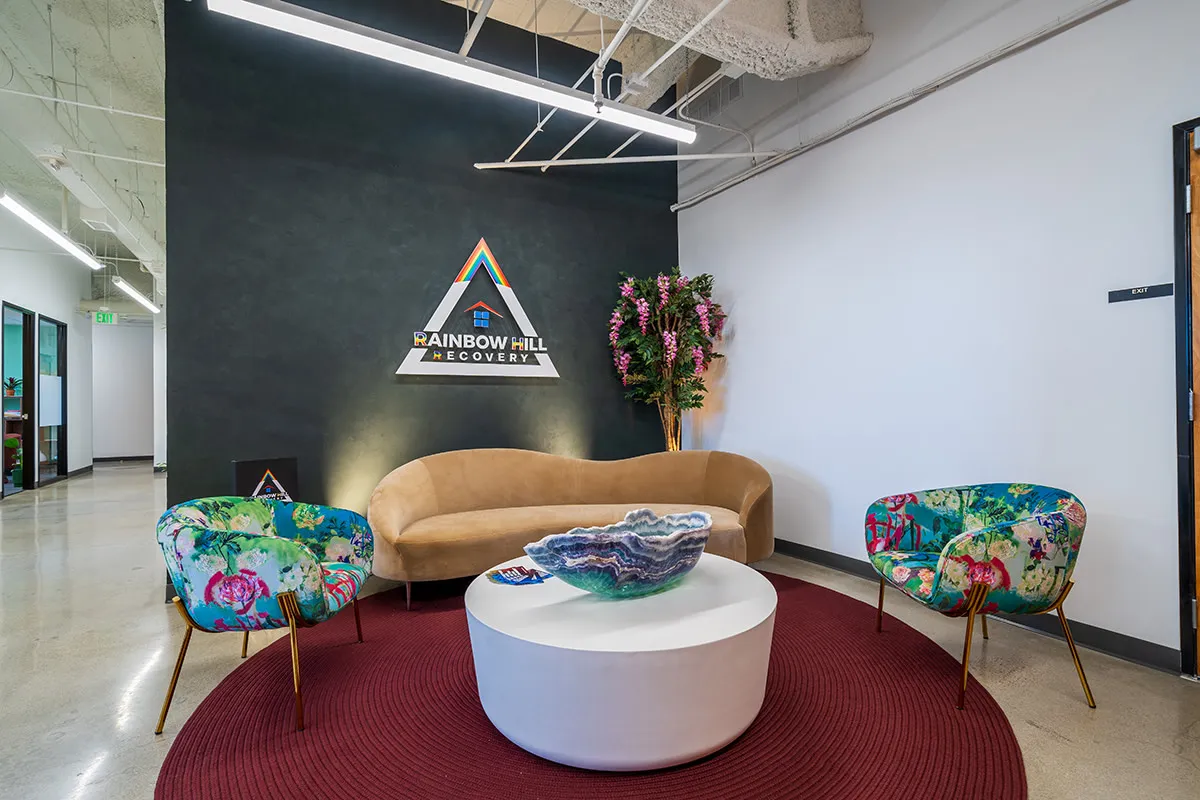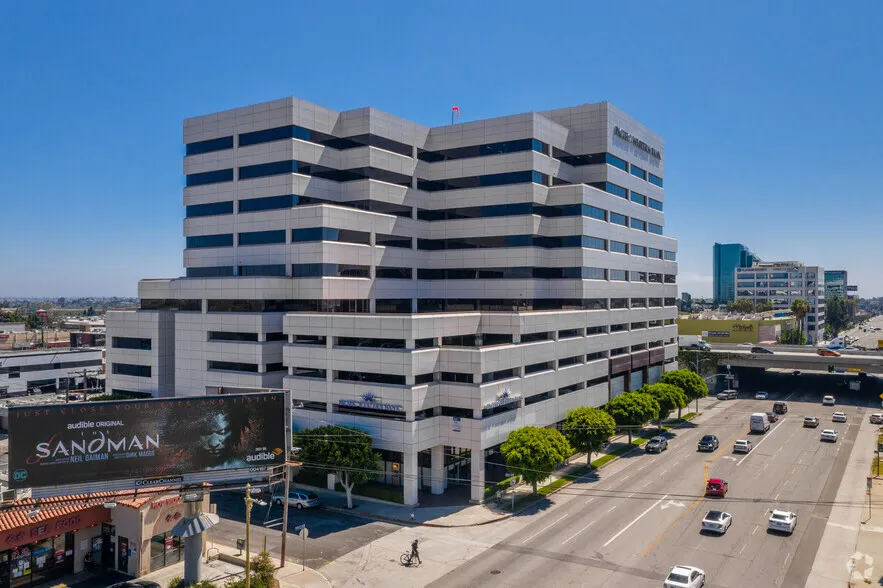Internet addiction treatment focuses on managing screen use, fostering offline engagement, and addressing emotional triggers. Therapy helps individuals regain balance and rebuild relationships.
Ads
More Info
Advertisement Disclosure
Our website is funded by advertisers who pay for prominently labeled placements.
Read More27 Rehab Centers were found
Filters
Locations
- Los Angeles(+98)
- Culver City(+14)
- Westlake Village(+13)
- Woodland Hills(+11)
- Beverly Hills(+10)
- Santa Monica(+9)
- Sherman Oaks(+7)
- West Hollywood(+6)
- Malibu(+5)
- Chatsworth(+5)
- Pasadena(+5)
- Encino(+5)
- Redondo Beach(+4)
- Lancaster(+4)
- Reseda(+4)
- Studio City(+4)
- Northridge(+3)
- San Mateo(+3)
- Lynwood(+3)
- Vernon(+3)
- Van Nuys(+3)
- Tarzana(+3)
- North Hollywood(+3)
- Glendale(+3)
- Gardena(+3)
- Riverside(+3)
- Granada Hills(+2)
- Shadow Hills(+2)
- Venice(+2)
- Orange County(+2)
- Pomona(+2)
- West Hills(+2)
- Valley Village(+2)
- Burbank(+2)
- Brentwood(+2)
- Long Beach(+2)
- Sun Valley(+1)
- Torrance(+1)
- San Jacinto(+1)
- San Pedro(+1)
- Upland(+1)
- Whittier(+1)
- Toluca Lake(+1)
- Thousand Oaks(+1)
- Simi Valley(+1)
- Mission Viejo(+1)
- Acton(+1)
- Beaumont(+1)
- Wilmington(+1)
- Panorama City(+1)
- Anaheim(+1)
- Laguna Hills(+1)
- Inglewood(+1)
- Alhambra(+1)
- Rosemead(+1)
- Maywood(+1)
- Manhattan Beach(+1)
- Monterey Park(+1)
- Claremont(+1)
- Covina(+1)
- La Puente(+1)
- Pico Rivera(+1)
- San Fernando(+1)
- Azusa(+1)
- Santa Fe Springs(+1)
- Glendora(+1)
- Agoura Hills(+1)
- El Segundo(+1)
- Duarte(+0)
- Sunland(+0)
- Downey(+0)
- Cudahy(+0)
- El Monte(+0)
- Compton(+0)
- Hermosa Beach(+0)
- Cerritos(+0)
- Calabasas(+0)
- Bellflower(+0)
- Bell Gardens(+0)
- Avalon(+0)
- Arcadia(+0)
- Altadena(+0)
- Paramount(+0)
- South El Monte(+0)
- Walnut(+0)
- West Covina(+0)
- Santa Clarita(+0)
- San Gabriel(+0)
- San Dimas(+0)
- Rolling Hills(+0)
- Orange(+0)
- Hawaiian Gardens(+0)
- Palmdale(+0)
- Norwalk(+0)
- Montebello(+0)
- Lakewood(+0)
- South Pasadena(+0)
- Carson(+0)
- Hawthorne(+0)
Conditions
- Drug(+278)
- Alcohol(+219)
- Mental Health(+195)
- Opioid(+193)
- Cocaine(+184)
- Trauma(+180)
- Methamphetamine(+177)
- Benzodiazepines(+174)
- Heroin(+173)
- Prescription Drugs(+159)
- Depression(+152)
- Anxiety(+149)
- Xanax(+145)
- Synthetic Drugs(+138)
- PTSD(+133)
- Adderall(+131)
- Marijuana(+112)
- Bipolar(+109)
- Ecstasy(+104)
- MDMA(+99)
- Behavioral Health(+93)
- LSD(+93)
- Psychedelics(+91)
- Fentanyl(+71)
- Stress(+71)
- OCD(+69)
- Personality Disorders(+63)
- ADHD(+61)
- Gambling(+38)
- Eating Disorders(+35)
- Anorexia(+34)
- Binge Eating Disorder(+34)
- Bulimia(+33)
- Schizophrenia(+32)
- Gaming(+28)
- Internet Addiction(+27)
- Sex Addiction(+25)
- Burnout(+23)
- Pornography(+22)
- Shopping(+10)
- Narcissism(+8)
Insurances
- BlueCross BlueShield(+129)
- Aetna(+126)
- Anthem(+105)
- Cigna(+105)
- United Healthcare(+66)
- Humana(+63)
- Optum(+53)
- Medicaid(+53)
- MHN(+51)
- Magellan Health(+47)
- Kaiser Permanente(+39)
- Medicare(+31)
- GEHA(+31)
- ComPsych(+29)
- Highmark(+25)
- AmeriHealth(+13)
- Tufts Health(+11)
- Oscar(+9)
- CareFirst(+9)
- Molina Healthcare(+8)
- Intermountain Healthcare(+6)
- Beacon Health Options(+2)
- UMR(+2)
- NYSHIP(+2)
- ILWU(+2)
- Geisinger(+2)
- Empire Life(+2)
- Empire BCBS(+2)
- Bright Health(+2)
- GuideWell(+1)
Therapies

$30,000-$50,000

$1,50

$10,000+ - 30 days

$40,000/month - 30 days

$175

$5,000 - $34,500 - 30 days
Internet Addiction Treatment in Los Angeles
Internet addiction is a growing concern in today`s digital age, where constant connectivity makes it easy to spend excessive time online. Whether it involves social media, streaming, online shopping, or endless browsing, internet addiction can interfere with work, relationships, and mental well-being.
For many, the internet serves as an escape from stress, loneliness, or emotional struggles. However, compulsive internet use can lead to isolation, decreased productivity, and even physical health issues from prolonged screen time.
Los Angeles offers specialized treatment programs designed to help individuals regain control, establish healthier tech habits, and address the underlying emotional triggers that fuel internet dependency.
Understanding Internet Addiction
Internet addiction is characterized by an inability to control online behavior, leading to negative consequences in daily life. Some of the most common forms of internet addiction include:
- Social media addiction – Excessive scrolling, posting, or seeking online validation at the expense of real-world interactions.
- Compulsive online gaming – Playing video games for extended hours, often to escape reality.
- Streaming and content bingeing – Watching excessive amounts of online videos, TV shows, or social media content, leading to sleep deprivation and neglect of responsibilities.
- Online shopping addiction – Uncontrollable spending on e-commerce platforms, leading to financial distress.
- Excessive news or forum browsing – Continuously consuming information online, often leading to anxiety or fear of missing out (FOMO).
Over time, internet addiction can rewire the brain’s reward system, making it harder to focus on real-world activities and responsibilities.
When Internet Addiction Treatment is Necessary
Not everyone who spends a lot of time online has an addiction, but treatment may be needed if:
- Online activities interfere with work, school, or relationships.
- Attempts to reduce internet use have failed.
- Sleep, physical health, or mental well-being are affected by excessive screen time.
- There is emotional distress when disconnected from the internet.
- In-person interactions and hobbies have been replaced by online activities.
If internet use is causing isolation, stress, or compulsive behaviors, professional treatment can help break unhealthy patterns and restore balance.
Effective Internet Addiction Treatment Approaches
Because internet addiction is often linked to emotional regulation and compulsive behaviors, treatment focuses on developing healthier habits, emotional awareness, and impulse control.
Cognitive behavioral therapy helps individuals identify unhealthy thought patterns that drive compulsive internet use. Therapy focuses on reducing screen dependency and building alternative coping mechanisms.
Mindfulness and digital detox techniques help individuals regain control by learning to be present in the real world. Many treatment programs encourage short-term digital detoxes to reset the brain’s dependence on screens.
Social skills training helps those who struggle with social anxiety or in-person interactions due to excessive online use. Therapy encourages face-to-face communication and real-world relationship-building.
Behavioral modification therapy teaches time management, self-discipline, and structured screen usage, helping individuals create healthy technology habits.
Family counseling is often beneficial for adolescents and young adults with internet addiction. Parents and family members learn how to set healthy digital boundaries and create supportive environments.
For severe cases, inpatient treatment programs provide structured, screen-free environments where individuals can focus on recovery. These programs often incorporate therapy, outdoor activities, and social skills training.
Identifying and Managing Triggers
Many individuals use the internet as an escape from stress, loneliness, or emotional struggles. Identifying triggers is key to breaking compulsive online behaviors. Some common triggers include:
- Social anxiety or fear of in-person interactions.
- Stress from work, school, or personal relationships.
- Low self-esteem or seeking online validation.
- Avoidance of real-world responsibilities.
- FOMO (fear of missing out) and excessive social media comparisons.
Therapy helps individuals develop alternative coping mechanisms to address these triggers without resorting to excessive internet use.
Developing Healthier Technology Habits
Instead of eliminating technology completely, treatment focuses on moderation and responsible use. Some strategies include:
- Setting screen time limits and using apps to monitor usage.
- Designating screen-free zones at home, such as the bedroom or dining area.
- Prioritizing real-world activities before engaging in online behavior.
- Taking regular breaks from screens throughout the day.
- Engaging in offline hobbies to reduce reliance on digital entertainment.
Over time, individuals learn to integrate technology in a balanced way without letting it dominate their lives.
Rebuilding Social and Real-World Engagement
Excessive internet use often leads to social withdrawal and reduced face-to-face interactions. Recovery focuses on rebuilding real-world connections and activities.
Therapy helps individuals:
- Improve social confidence and communication skills.
- Reconnect with family and friends outside of digital platforms.
- Engage in physical activities, creative hobbies, and outdoor experiences.
- Develop a structured daily routine that prioritizes in-person interactions.
For younger individuals, structured group activities such as team sports, volunteer work, or in-person social groups can help reintegrate them into healthy social environments.
Long-Term Recovery and Relapse Prevention
Internet addiction recovery is an ongoing process that requires self-awareness, consistency, and structured habits. Some key relapse prevention strategies include:
- Continuing therapy or support groups for accountability.
- Tracking screen time to avoid excessive usage.
- Developing personal goals that encourage offline engagement.
- Practicing self-discipline in managing internet and social media habits.
With time, individuals who recover from internet addiction find greater fulfillment, stronger relationships, and improved mental clarity.
Finding Internet Addiction Treatment in Los Angeles
Los Angeles offers a variety of internet addiction treatment options, including:
- Outpatient therapy for individuals looking to moderate their internet habits.
- Residential internet addiction treatment programs for those needing immersive recovery.
- Digital detox retreats designed to reset online behaviors.
- Family therapy programs to help parents and young adults navigate screen addiction.
Seeking treatment for internet addiction is not about quitting technology entirely—it is about regaining control, creating balance, and prioritizing real-world experiences. Many treatment centers in Los Angeles offer free consultations to help individuals take the first step toward recovery.
Frequently Asked Questions
Is internet addiction a real disorder?
Can internet addiction be treated without quitting technology completely?
How long does internet addiction recovery take?
Are there specialized programs for teenagers with internet addiction in Los Angeles?
Ads
More Info
Advertisement Disclosure
Our website is funded by advertisers who pay for prominently labeled placements.
Read More






































